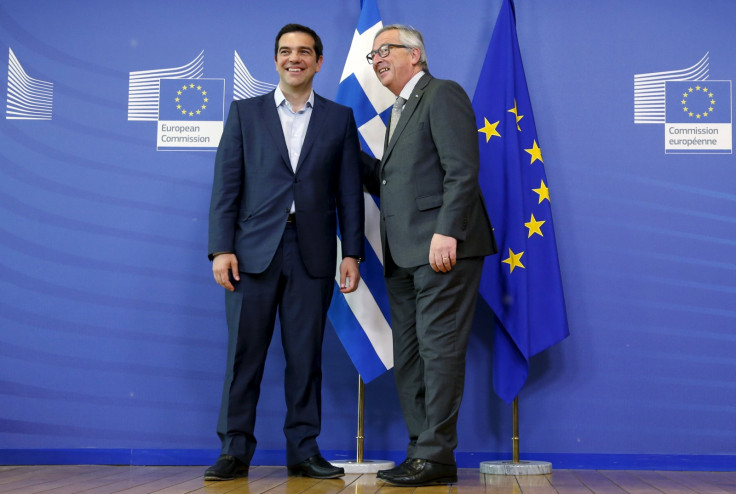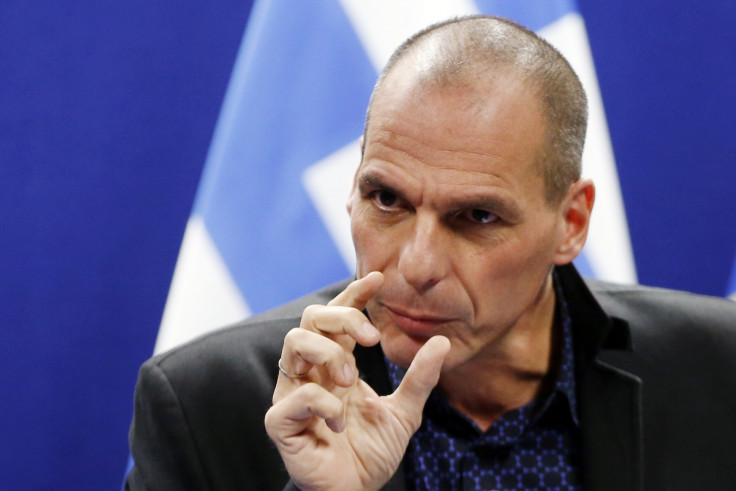Grexit: Prime Minister Alexis Tsipras accuses creditors of trying to humiliate Greece

Alexis Tsipras has ratcheted up the rhetoric against his country's creditors, accusing them of trying to "humiliate" Greece as he set a defiant tone with bailout talks faltering.
Addressing the Greek parliament, an emotional Tsipras said: "The time has come for the IMF's proposals to be judged not just by us but especially by Europe.
"Right now, what dominates is the IMF's harsh views on tough measures, and Europe's on denying any discussion over debt viability. The fixation on cuts ... is most likely part of a political plan ... to humiliate an entire people that has suffered in the past five years through no fault of its own."
And in a televised speech to Syriza party members, an unrepentant Tsipras said: "I'm certain future historians will recognise that little Greece, with its little power, is today fighting a battle beyond its capacity not just on its own behalf but on behalf of the people of Europe."
He attacked EU and IMF bailout monitors for what he called "laying traps" in the negotiations and warned: "Our biggest battles [with creditors] still lie ahead and we must be ready to fight."
Greece is in desperate need of a cash-for-reforms deal to unlock €7.9bn (£5.7bn, $8.9bn) in additional funds from the IMF.
Juncker hits back
His comments were immediately seized upon by European Commission president Jean-Claude Juncker, a former ally.
"I am blaming the Greeks [for telling] things to the Greek public which are not consistent with what I've told the Greek prime minister," Juncker said.
Tsipras has said that the lenders wanted to raise VAT on electricity.
Other Greek ministers have criticised suggestions to increase sales tax on medicines.
However, Juncker said: "I'm not in favour, and the prime minister knows that... of increasing VAT on medicaments and electricity. This would be a major mistake.
"The debate in Greece and outside Greece would be easier if the Greek government would tell exactly what the Commission... are really proposing," he added.
Greek finance Minister Yanis Varoufakis rejected this, claiming claimed that EU proposals did include VAT increases. He said: "Juncker either hadn't read the document he gave to Tsipras - or he read it and forgot about it."

And interviewed by Germany's Spiegel newspaper, Varoufakis said the reform proposals were already so harsh, Germans themselves would never accept them. He said: "Greece will only commit to them if Europe agrees to a debt restructuring, investments and an end to the liquidity crisis." Asked if an agreement could be reached, he replied: "Ask [Chancellor Angela] Merkel."
As a result of the gloom surrounding the talks, European stock markets hit their lowest level since February. The risk premium on bonds of other vulnerable eurozone states surged.
Greece is set to default on a €1.6bn (£1.1bn, $1.8bn) debt repayment to the IMS on 30 June unless it receives fresh funds. It has already threatened to default, pushing it towards the euro exit.
German right-wing legislators seemed to be accepting a Grexit as inevitable. "In the event a solid reform package is not presented, then a 'Grexit' would have to be accepted if necessary," said Michael Grosse-Broemer, of Merkel's Christian Democrats. "I'm not so sure any more if the Greek government is really interested in averting damage for the people of Greece."
© Copyright IBTimes 2025. All rights reserved.





















